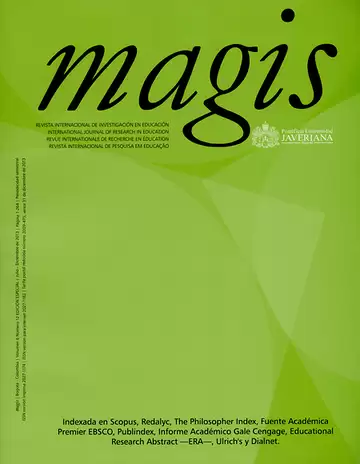Abstract
The study of conceptions of biodiversity has become an important issue in contemporary discussions in science, education, politics and culture. Emerging perspectives are related to the polysemic origin of the expression itself. They take into account the complexity and diversity of its representations, varying from universal to cultural approaches, the latter confronting uniformity, with deep implications for education and teacher training.
Magis, International Journal of Research in Education by Pontificia Universidad Javeriana is registered under a Creative Commons Attribution 4.0 International Public License. Thus, this work may be reproduced, distributed, and publicly shared in digital format, as long as the names of the authors and Pontificia Universidad Javeriana are acknowledged. Others are allowed to quote, adapt, transform, auto-archive, republish, and create based on this material, for any purpose (even commercial ones), provided the authorship is duly acknowledged, a link to the original work is provided, and it is specified if changes have behttps://creativecommons.org/licenses/by/4.0/en made. Pontificia Universidad Javeriana does not hold the rights of published works and the authors are solely responsible for the contents of their works; they keep the moral, intellectual, privacy, and publicity rights.
Approving the intervention of the work (review, copy-editing, translation, layout) and the following outreach, are granted through an use license and not through an assignment of rights. This means the journal and Pontificia Universidad Javeriana cannot be held responsible for any ethical malpractice by the authors. As a consequence of the protection granted by the use license, the journal is not required to publish recantations or modify information already published, unless the errata stems from the editorial management process. Publishing contents in this journal does not generate royalties for contributors.
Creative Commons Attribution 4.0 International Public License


